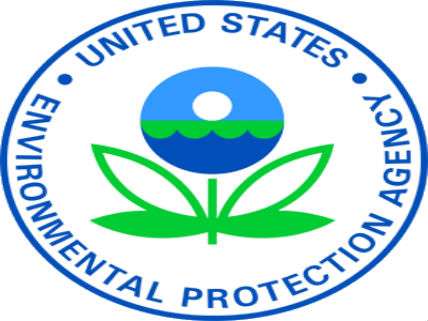Environmental Protection Agency
EPA Power Plant Rule Can Go Forward, Says Federal Court
Opponents vow to fight on arguing Obama's Clean Power Plan is unconstitutional.

The EPA is the process of promulgating rules that would limit the amount of carbon dioxide electricity generation plants may emit. The regulatiolns are part of the Obama Administration's efforts to reduce the emissions of greenhouse gases thought by many researchers to be the main contributor to global climate change. Since coal emits relatively greater amounts of carbon dioxide when burned than other fuels, the new rules would significantly cut back on the amount of coal used to produce electricity. In an effort to forestall the adoption of the new rules, several states and power companies sued the agency in federal court arguing that the regulations are unconstitutional. Today the U.S. Court of Appeals for the District of Columbia Circuit ruled narrowly that the courts should not now intervene before the EPA rule is actually made final. That is likely to happen in August.
The Examiner reports:
The proposed EPA regulation, called the Clean Power Plan, seeks to curb electricity sector carbon emissions 30 percent below 2005 levels by 2030. It would allow states to reduce emissions by upgrading power plant energy efficiency, converting coal-fired power to natural gas, adding renewable power and enhancing customers' energy efficiency.
"EPA is pleased that the court has denied the challenges to our proposed Clean Power Plan and confirmed our assessment that they are premature," EPA spokeswoman Liz Purchia said.
But the ruling is just a temporary reprieve for rule supporters, with the real slog coming once the agency finalizes the regulation in August. The federal court didn't consider the merits of the plaintiffs' arguments in its opinion, noting that it didn't have purview to do so when the rule was in draft form. …
Plaintiffs, led by attorney Laurence Tribe — a mentor of Obama at Harvard Law School — argued the proposal was unconstitutional because it calls on potential emissions reductions outside of individual smokestacks and delves into states' energy planning.
Interestingly, Tribe (who works as an attorney for one of the plaintiffs) testified before Congress earlier this year, asserting:
EPA lacks the statutory and constitutional authority to adopt its plan. The obscure section of the Clean Air Act that EPA invokes to support its breathtaking exercise of power in fact authorizes only regulating individual plants and, far from giving EPA the green light it claims, actually forbids what it seeks to do.
Even if the Act could be stretched to usurp state sovereignty and confiscate business investments the EPA had previously encouraged and in some cases mandated,as this plandoes, the duty to avoid clashing with the Tenth and Fifth Amendments would prohibit such stretching. EPA possesses only the authority granted to it by Congress. It lacks "implied" or "inherent" powers.
Its gambit here raises serious questions under the separation of powers, Article I, and Article III, because EPA is attempting to exercise lawmaking power that belongs to Congress and judicial power that belongs to the federal courts. The absence of EPA legal authority in this case makes the Clean Power Plan, quite literally, a "power grab."
EPA is attempting an unconstitutional trifecta: usurping the prerogatives of the States, Congress and the Federal Courts - all at once. Burning the Constitution should not become part of our national energy policy.
Alas, burning sections of the Constitution has been policy for a while now. We shall how these arguments fare later this year.


Show Comments (34)